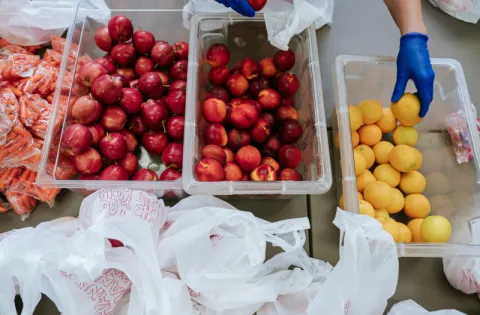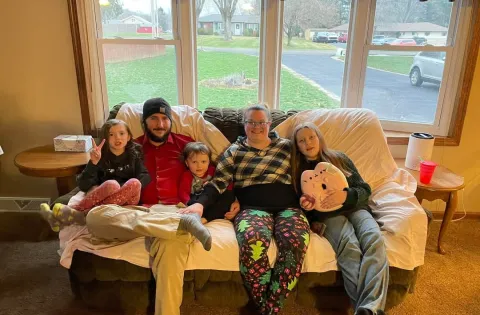I used to be a teacher in an elementary school in Arkansas. I will never forget how the week before our summer vacation, a little girl named Mariana, who was usually an exemplary student, began acting up. She was squirrely and didn’t want to listen, which was very unlike her.

I didn’t understand it then, but this little girl was worried and sad about school ending because she knew that the reliable meals that she received in school were not going to be there. In my role at No Kid Hungry, I have learned that summer is actually the hungriest time of the year for millions of kids in America. Ending this crisis is essential to realize our No Kid Hungry vision.
For this reason, this week in Dallas, we organized our second Summer Nutrition Summit, convening leaders from school districts, food banks, organizations and governmental agencies working to end hunger. Major partners included APHSA and USDA. The summit brought together over 500 attendees from 47 states, DC, Puerto Rico, the US Virgin Islands, American Samoa and 4 Tribes.
 |  |  |
“Last summer looked brighter for millions of children and families across the country,” said Anne Filipic, CEO of Share Our Strength, the organization behind No Kid Hungry, to participants of the summit. “Each person in this room played a role in that success… We still have a lot of work ahead of us, and the good news is that we are in it together. Over the next few days, we will share ideas, raise questions, offer promising practices, ask for help and make connections – all in an effort to reach more kids with the food they need over the summer.”
The summit was an effort to mobilize on two legislative changes that give us an opportunity to close the summer hunger gap: non-congregate meals and Summer EBT.
Non-congregate meals allow organizations to deliver meals to families or let them take and eat meals at home. Before, parents had to bring their kids to meal sites where they had to eat their meals (known as congregate meals). This change that is currently only available for rural communities is a big deal for families who may not have transportation or those who are busy working.
Summer EBT is a grocery benefit program for kids in both rural and urban communities based on income level. Eligible families now get an extra $120 per child during summer months to buy food, easing the financial strain on them. Once fully implemented this program could help tens of millions of kids.

The summit included the voices of parents and families who have participated in these summer nutrition programs, people doing the work on the ground and also those making things happen behind the scenes, such as state agencies without whom summer meals and Summer-EBT would not be possible.

“I am a single mom with three hungry bellies at home, and these aren’t just any regular hungry bellies; these are teenagers,” said Cherise, a mom and strategic consultant from Vancouver, Washington. “The fact that Summer-EBT happened was amazing because for me, it was the choice of putting food on the table and paying an electric bill. Because of Summer-EBT, I was able to do both, so thank you.”
Cherise explained that her kids were able to thrive and not just survive. Summer-EBT offers families the flexibility and dignity of choice at the grocery store.
Years after learning about the hunger that my students experienced when I was teaching, it was empowering to witness so many different people coming together to end summer hunger. And even though it's getting cold in some places, and it’s hard to even think about summer, many communities know that to be successful the preparations for the summer need to start now. The stakes are high with millions of kids facing hunger in the summer.
Stay tuned for stories about how communities and leaders who attended this summit are working together to end summer hunger once and for all. And join us to make a difference in the lives of kids.
Ways You Can Help
- Donate: $1 can help provide 10 meals* for kids. Your support will help us fund meal programs all over the country and help us advocate for policies that will help kids get the meals they need. *Donations help support programs that feed kids; No Kid Hungry does not provide individual meals. Learn more at NoKidHungry.org/OneDollar.
- Speak up for kids: Reach out to your elected officials and ask them to do more to end childhood hunger. Tell your lawmaker to advocate for policies that will help kids get the meals they need.



